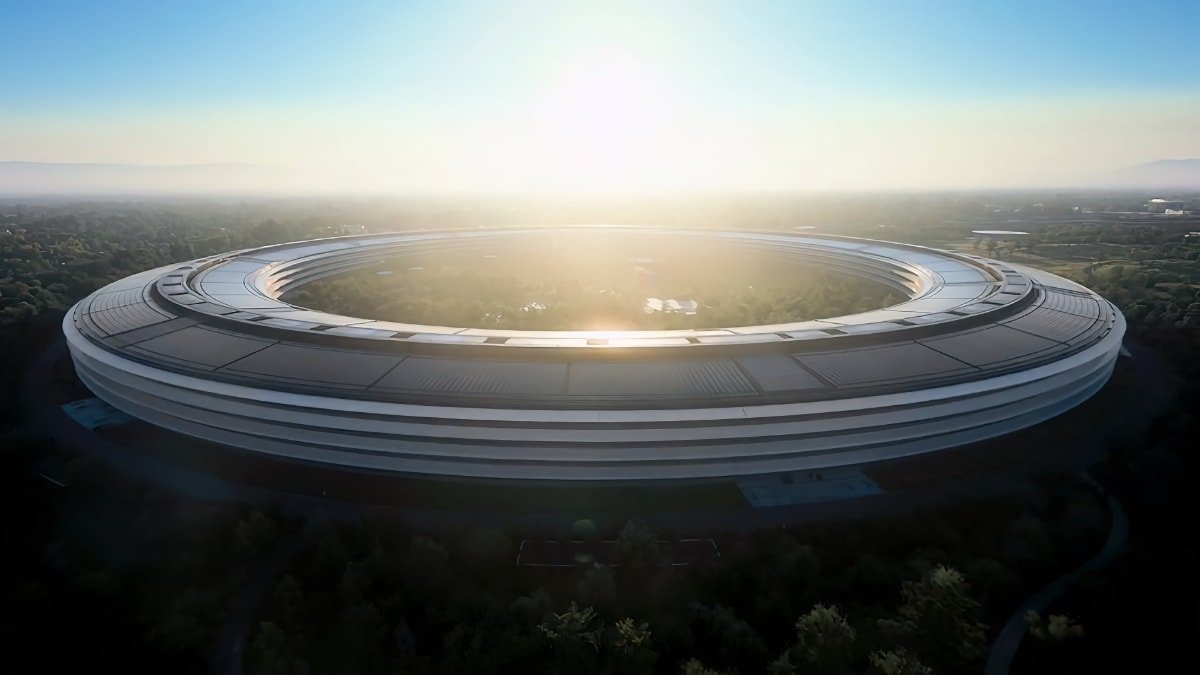Apple may be gearing up for first corporate bond sale since 2023
Apple is allegedly preparing to sell corporate bonds, in a sale that could raise billions in cash and finance a $100 billion share buyback plan.

Apple Park
The sale of corporate bonds can be a way for a large company to quickly raise cash. On Monday, it seems that the iPhone maker is planning to do just that.
According to a person familiar with the plans speaking to Bloomberg, Apple is preparing to make a sale of "Investment-grade bonds" later in the day. This would mark the first time of Apple selling corporate bonds since 2023.
The terms of the deal apparently take the form of Apple selling bet in up to four parts. While details of the terms are unknown, the longest portion is said to be a ten-year note, offered at a rate approximately 0.7% above treasuries.
Barclays, Bank of America, Goldman Sachs, and JPMorgan Chase & Co are said to be managing the bond sale.
The amount Apple expects to sell is also unknown, however bankers are expecting to see $35 billion to $40 billion in newly issued bonds on the market as a whole. Tech firms are anticipated to make up the bulk of that quantity.
Debt sale for cash
A company can sell corporate bonds as a way to raise funds, by selling debt securities to other entities. Apple would get funds so it can make payments for various business needs, and in exchange, the buyer of the bonds would get their money back as well as interest payments.
For investors, an "Investment-grade" bond from a company like Apple is viewed as an investment with a reliable and predictable rate of return. It's not quite as reliable as a government bond, but for entitles such as Apple, it's pretty close.
To Apple, the sale of debt to investors is an efficient and predictable way of raising cash, often better than getting a loan from a bank or financial institution. It's also cheaper than issuing stock, while also not diluting any existing ownership stakes.
It is unclear exactly why Apple wants to sell bonds and raise cash, especially since its Q2 2025 results revealed it had $28 billion in "cash and cash equivalents," along with other assets.
A good candidate for the raised funds is to help pay for a share buyback scheme, also announced during the Q2 results. The board of directors authorized a new program to repurchase up to $100 billion in Apple's common stock.
Read on AppleInsider

Comments
https://hbr.org/2020/01/why-stock-buybacks-are-dangerous-for-the-economy
https://casten.house.gov/media/in-the-news/theres-a-reason-why-stock-buybacks-used-to-be-illegal
https://en.wikipedia.org/wiki/Gordon_Gekko
Ill informed? Most profits are made overseas. Combined with an aversion against paying taxes we have a company with a lot of funds placed where they are not needed. And so Apple keep borrowing in the US to avoid being taxed.
So the concept of repatriation no longer has the tax significance it used to. Indeed, if you read Apple's SEC filings you'll see that it no longer reports the amount of cash, cash equivalents and marketable securities held by foreign subsidiaries which would be subject to U.S. taxation if repatriated. It stopped reporting those numbers after the TCJA came into effect. It largely stopped mattering whether those funds were distributed to U.S. Apple.